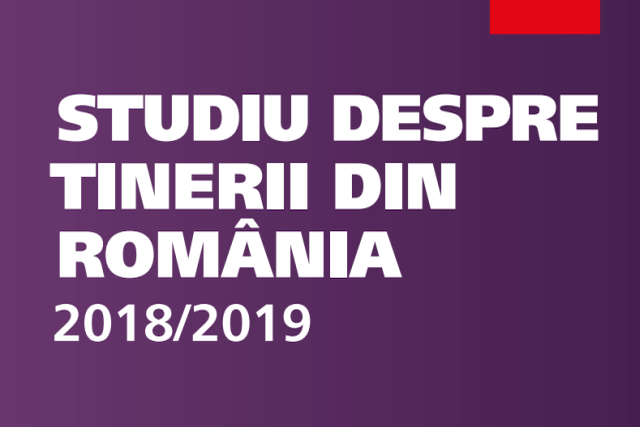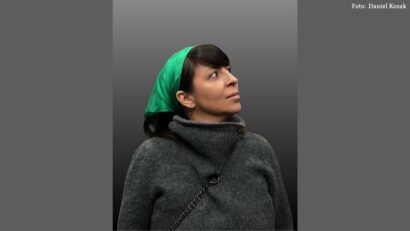Young people in Romania – a collective portrait
A recent survey conducted by the Friedrich Ebert Foundation in Romania puts the spotlight on young people.

Christine Leșcu, 31.07.2019, 00:35
A recent sociological survey conducted by the
Friedrich Ebert Foundation in Romania puts the spotlight on an age category of
which people talk a lot but know little, namely young people. The survey
conducted in 2018 reveals the attitude, outlook and self-perception of the
Romanians aged between 14 and 29 on such issues as family, education,
lifestyle, religion and democracy. They have been compared with young people
from other European countries, EU and non-EU members.
All economic and social indicators referring to young
people in Romania are looking very bad, says Gabriel Badescu, one of the authors
of the survey together with Daniel Sandu, Daniela Angi and Carmen Greab. Some
of these indicators must be applied in a broader European context, though. For example,
more than half of Romanian respondents agree that democracy is a good form of
government but 23% believe that under some circumstances, dictatorship could be
a better form of government than democracy. In comparison with the other nine
countries in south-eastern Europe included in the survey, democracy enjoys the
lowest level of support in Romania, notwithstanding the authoritarian
tendencies visible in all European countries.
Worth noting is that generational change does by
itself bring along better, more democracy-loving pro- citizens, says Gabriel
Badescu:
This decline in people’s attachment to democracy is
not uniformly spread throughout all age categories. In fact, it very much
depends on the respondent’s age. When we refer to the quality of democracy, we
should know that young people are a vulnerable and problematic category. Problematic
because according to studies, once certain attitudes are imprinted at an early
age, it is extremely difficult to change them later; they remain engrained and
perpetuate themselves.
Besides mentalities, the Friedrich Ebert Foundation’s
study also looked at the level of support for minorities in Romania and the
other nine countries. Gabriel Badescu tells us what the findings are:
Support for minority rights is low among young
people. Romania has the lowest levels of support in the case of several categories
of minorities out of all the 10 countries. It also has the second lowest level of
support for the ethnic minorities and the third lowest when it comes to the
rights of the poor.
The study has also revealed a disparity between Romania’s
regions and between its rural and urban areas. The disparity between young
people in the urban areas and those in rural areas reflects a disadvantage for
the latter. According to other surveys, in 2017, the poverty risk rate in the
rural area stood at 37.3%, which is six times higher than in urban areas. The
survey on young people carried out in 2018 reveals that 23% of young people in
rural regions fall in a category known as NEET, which stands not in employment, education or training, which means
they don’t pursue any kind of formal education and they are not employed
either. This figure is twice as high in the rural areas than in urban areas, a
disparity which is not found in other EU countries.
The economic situation is also used
by the authors of the survey to explain the rather high percentage of young
people who want to emigrate. Unlike 2014, when a similar survey was conducted
and when 60% of young people aged between 14 and 29 intended to emigrate, in
2018, this figure dropped to almost 30%. The sociologist Daniel Sandu points
out that this figure reflects wishes and not necessarily specific plans to
leave the country:
It’s not essential how intense this
wish is when trying to establish whether they will, indeed, leave the country.
The desire to leave can rather be interpreted as an answer to the question: ‘how
do you assess your opportunities for self-development in your own country?’. If
the economic situation in your own country is difficult, as it was in 2014, and
if there are fewer opportunities, then the tendency occurs to project your departure
or to wish to leave the country.
As to who wants to leave country most
strongly, the survey reveals some surprising answers, says sociologist Daniel
Sandu:
If we look more closely we notice a
bimodal distribution of migration intentions. There are two very different groups,
at opposite ends. One group is made up of young people coming from advantaged families
who plan to study abroad. The group is made up of young people from families
who have access to goods, but not as a result of their families’ affluence but because
different members of their families are already abroad. They send money back to
the country and give these young people access to goods, but they don’t provide
them with stability and real prospects for the future in this country.
The perception of the future is in
fact founded on how the present is perceived. In this respect, the survey confirms
other statistics. The representative of the Friedrich Ebert Foundation in Romania,
Victoria Stoiciu, explains:
As it transpires from our survey and
other studies, young people are clearly an underprivileged category, first and
foremost economically. If we look at the poverty rate among young people, I’m
referring to those aged between 14 and 25, we will see it is very high, higher
than among other age categories. We usually refer to the elderly or the retired
when we draw such comparisons. It doesn’t mean that the elderly don’t have problems,
but that the economic situation of young people is much worse. What’s more,
young people are under-represented politically.






























